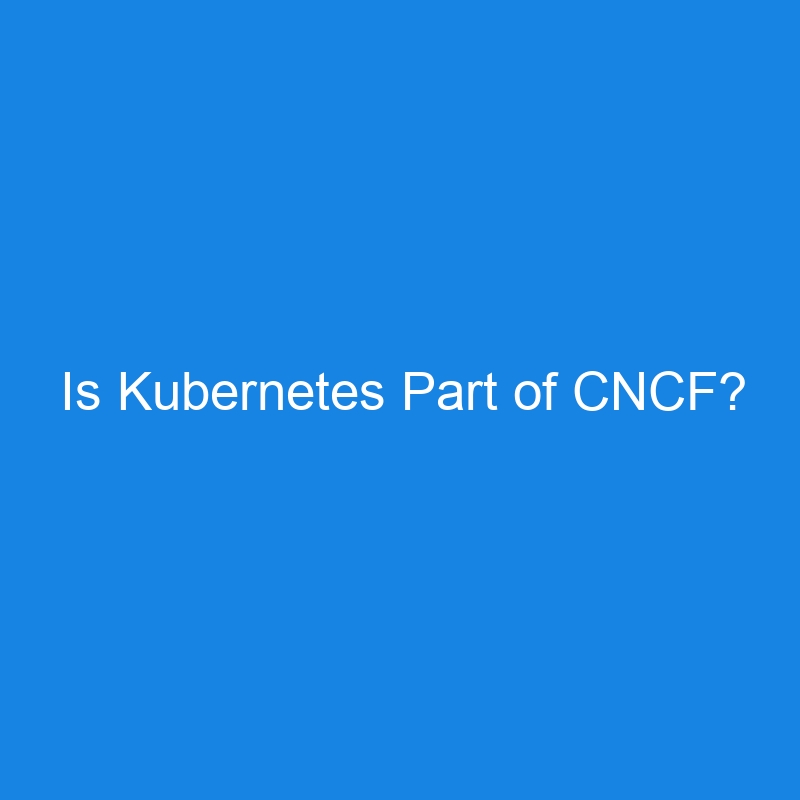The landscape of cloud-native technologies is expansive and ever-evolving, with Kubernetes serving as one of its most pivotal players. But is Kubernetes officially a part of the Cloud Native Computing Foundation (CNCF)? The short answer is yes—and its relationship with CNCF is both foundational and strategic. Let’s delve into the details.
The Birth of Kubernetes and CNCF
Kubernetes, originally developed by Google, was open-sourced in 2014. It was designed to address the complexities of container orchestration and quickly gained traction due to its robust feature set and active community involvement. Recognizing its potential to transform how applications are deployed and scaled, Google donated Kubernetes to the newly established CNCF in 2015.
CNCF itself was founded under the Linux Foundation as a home for cloud-native projects. Kubernetes became its inaugural project, marking a significant milestone in the open-source ecosystem. This decision underscored CNCF’s mission to foster the development and adoption of modern, scalable, and interoperable cloud-native technologies.
Why Kubernetes Was Donated to CNCF
Google’s decision to donate Kubernetes was strategic. By transferring the project to CNCF, Google ensured that Kubernetes would have:
- Neutral Governance: Being part of CNCF meant that Kubernetes would not be controlled by a single entity, fostering trust and wider adoption across industries.
- Ecosystem Growth: CNCF’s structure and resources help incubate projects, build vibrant ecosystems, and provide frameworks for open governance.
- Vendor Independence: As part of CNCF, Kubernetes became vendor-neutral, encouraging participation from multiple organizations and cloud providers.
Kubernetes and CNCF: A Symbiotic Relationship
Since its adoption by CNCF, Kubernetes has played a critical role in defining what it means to be cloud-native. In turn, CNCF has supported Kubernetes by:
- Standardizing Practices: CNCF’s Kubernetes Conformance Program ensures compatibility and interoperability across Kubernetes distributions.
- Community Building: CNCF has nurtured a global community around Kubernetes, hosting events like KubeCon + CloudNativeCon and fostering collaboration among developers, end-users, and enterprises.
- Incubating Complementary Projects: CNCF’s portfolio includes projects that complement Kubernetes, such as Prometheus for monitoring, Helm for package management, and Envoy for service mesh.
Kubernetes’ Impact on CNCF
Kubernetes’ success has been instrumental in CNCF’s growth. As the flagship project, it has:
- Attracted significant membership to CNCF, including major cloud providers, enterprises, and startups.
- Catalyzed the development of over 100 other cloud-native projects within CNCF.
- Defined key principles and practices for cloud-native computing.
Conclusion
Kubernetes is not just a part of CNCF; it is the cornerstone of its ecosystem. The decision to house Kubernetes under CNCF has paid off immensely, driving innovation and collaboration in the cloud-native space. As both Kubernetes and CNCF continue to evolve, their partnership serves as a model for how open-source projects can thrive under neutral, community-driven governance.
Whether you’re a developer, an enterprise user, or simply a tech enthusiast, understanding Kubernetes’ role within CNCF offers insights into the power of collaborative innovation in shaping the future of technology.
